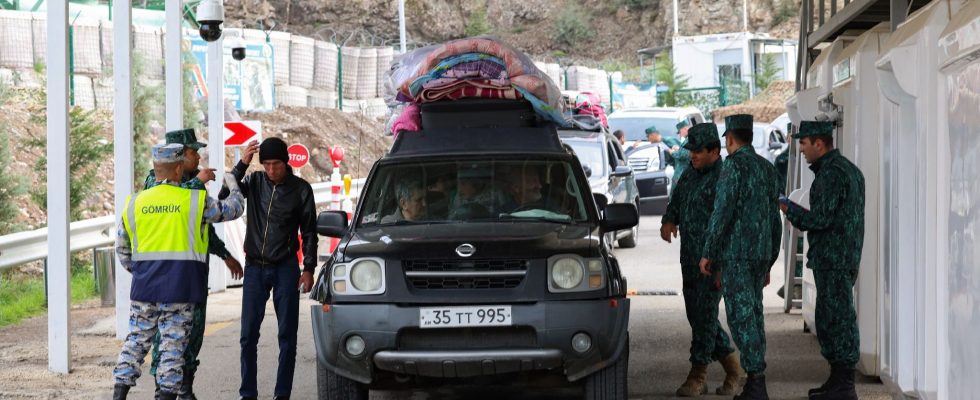This is an important step for these two Caucasian countries which have opposed each other during several wars over territorial issues. Armenia and Azerbaijan announced on Tuesday, April 23, that they had started the demarcation of their common border.
Azerbaijan’s Interior Ministry said in a statement that expert groups were carrying out “clarification of coordinates on the basis of a geodetic survey of the terrain.” The Armenian Interior Ministry, which confirmed “delimitation works” of the border, ruled out “the transfer of any part of the sovereign territory of Armenia” to Baku following this process.
Four villages restored
Last month, Armenian Prime Minister Nikol Pashinian accepted a request from Baku to return four border villages seized by Yerevan’s forces during a war in the 1990s. This decision sparked protests by hundreds of people. Armenians in a region bordering Azerbaijan, who fear their isolation and that some of their homes will find themselves under control of Baku.
On Monday, they briefly blocked the road linking Armenia and Georgia, which passes nearby and represents the main link to the outside world for the local population. They also tried to prevent mine clearance work. And on Tuesday, new protests broke out in several places in Armenia, including near Lake Sevan and the town of Noyemberyan.
Maps from the Soviet era
Last week, the two rival countries announced their intention to demarcate their border based on maps dating from the Soviet era. Nikol Pashinian insisted on the need to resolve border disputes in order to “avoid a new war” with Azerbaijan. These two former Soviet republics faced each other in two wars, the first in the 1990s won by Armenia and which left more than 30,000 dead, and the second in 2020, won by Azerbaijan and which left more than 6,000 dead.
After the Armenian defeat in 2020, Yerevan was forced to cede to its adversary significant territories in and around Nagorno-Karabakh, an enclave that it had controlled for around thirty years.
In September 2022, Baku launched a lightning offensive forcing the Armenian separatists of Nagorno-Karabakh to capitulate within a few days, and took control of the entire territory.
